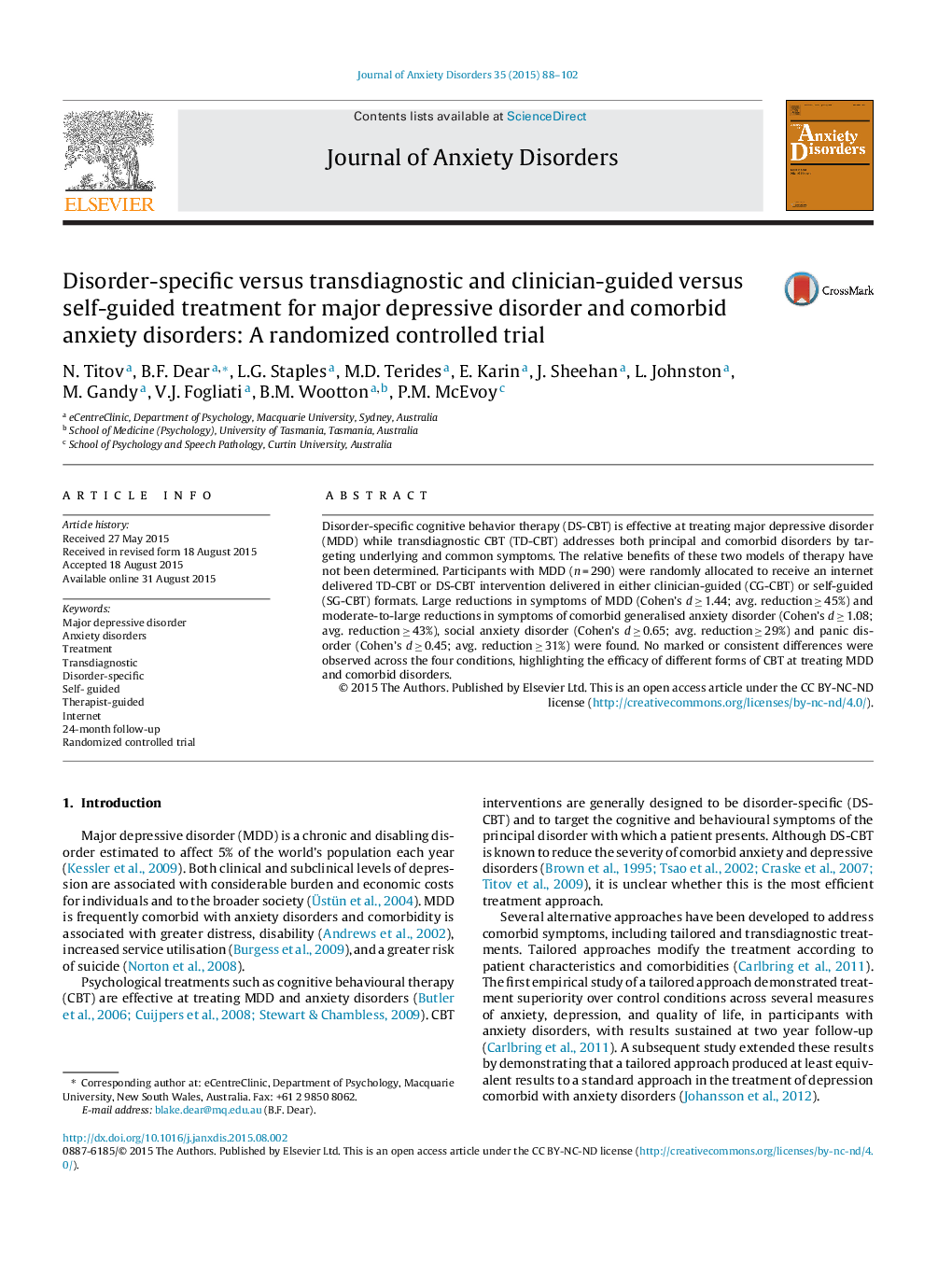| کد مقاله | کد نشریه | سال انتشار | مقاله انگلیسی | نسخه تمام متن |
|---|---|---|---|---|
| 7267328 | 1473043 | 2015 | 15 صفحه PDF | دانلود رایگان |
عنوان انگلیسی مقاله ISI
Disorder-specific versus transdiagnostic and clinician-guided versus self-guided treatment for major depressive disorder and comorbid anxiety disorders: A randomized controlled trial
ترجمه فارسی عنوان
اختلال خاص در مقابل درمان ترشحات دهان و تشخیصی و درمانگر مبتنی بر خود به خودی برای اختلال افسردگی عمده و اختلالات اضطراب همراه: یک کارآزمایی کنترل شده تصادفی
دانلود مقاله + سفارش ترجمه
دانلود مقاله ISI انگلیسی
رایگان برای ایرانیان
کلمات کلیدی
اختلال افسردگی عمده، اختلالات اضطرابی، رفتار، ترشحات تشخیصی اختلال خاص خود هدایت، مربی درمانگر، اینترنت، پیگیری 24 ماهه، آزمایش تصادفی کنترل شده،
موضوعات مرتبط
علوم پزشکی و سلامت
پزشکی و دندانپزشکی
روانپزشکی و بهداشت روانی
چکیده انگلیسی
Disorder-specific cognitive behavior therapy (DS-CBT) is effective at treating major depressive disorder (MDD) while transdiagnostic CBT (TD-CBT) addresses both principal and comorbid disorders by targeting underlying and common symptoms. The relative benefits of these two models of therapy have not been determined. Participants with MDD (n = 290) were randomly allocated to receive an internet delivered TD-CBT or DS-CBT intervention delivered in either clinician-guided (CG-CBT) or self-guided (SG-CBT) formats. Large reductions in symptoms of MDD (Cohen's d â¥Â 1.44; avg. reduction â¥Â 45%) and moderate-to-large reductions in symptoms of comorbid generalised anxiety disorder (Cohen's d â¥Â 1.08; avg. reduction â¥Â 43%), social anxiety disorder (Cohen's d â¥Â 0.65; avg. reduction â¥Â 29%) and panic disorder (Cohen's d â¥Â 0.45; avg. reduction â¥Â 31%) were found. No marked or consistent differences were observed across the four conditions, highlighting the efficacy of different forms of CBT at treating MDD and comorbid disorders.
ناشر
Database: Elsevier - ScienceDirect (ساینس دایرکت)
Journal: Journal of Anxiety Disorders - Volume 35, October 2015, Pages 88-102
Journal: Journal of Anxiety Disorders - Volume 35, October 2015, Pages 88-102
نویسندگان
N. Titov, B.F. Dear, L.G. Staples, M.D. Terides, E. Karin, J. Sheehan, L. Johnston, M. Gandy, V.J. Fogliati, B.M. Wootton, P.M. McEvoy,
